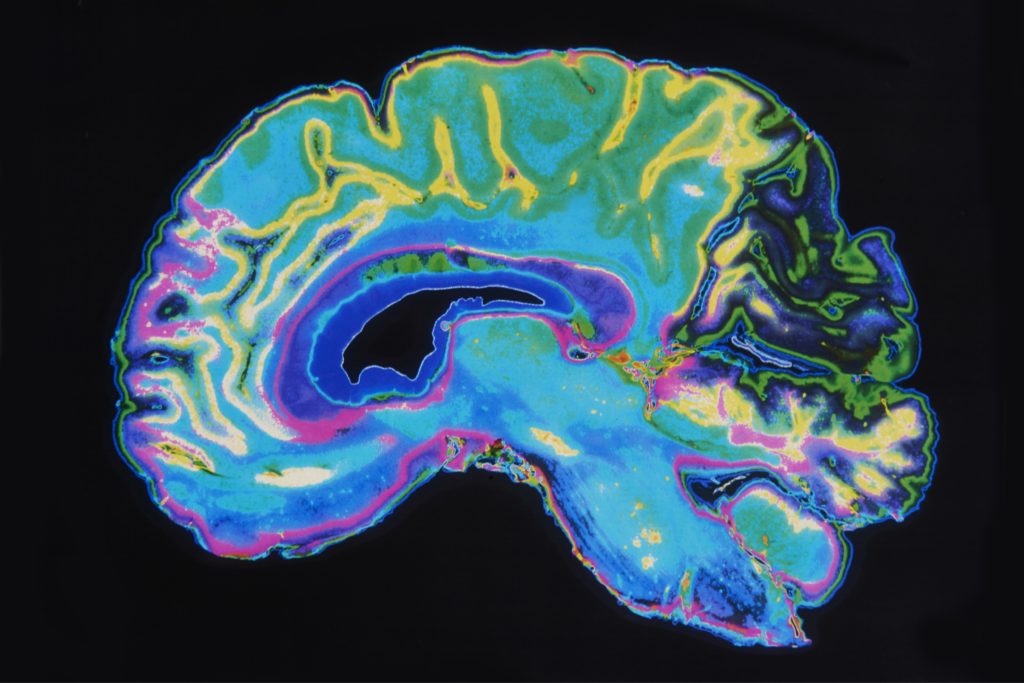Quick Hits
Daily brief research updates from the cognitive sciences

Teenagers’ brains are different – as many parents of teenagers notice quite intensely!
Adolescence is a critical period – we all know that. And the brain also goes through a number of changes, some of them well documented and others not. Adolescence is also a time when major mental illnesses such as depression and schizophrenia emerge but it also when risk-taking behaviour peaks.
Researchers at the University of Pittsburgh have now found compelling evidence of how this happens.
To do this the researchers around Maria Perica zoomed in on the prefrontal cortex of the brain. This region of the brain, at the front, your forehead, is considered the executive centre of the brain. The part that exerts control over other parts but also coordinates and consolidates lots of information. It is also an area involved heavily in decision-making.
Perica et al., used advanced imaging that gives double the resolution of normal imaging and compared the balance of two neurotransmitters in the fontal cortex of 144 adolescent and adult participants.
They specifically focused on the two main transmitters Glutamate and GABA. Glutamate is the brain’s man excitatory transmitter triggering action but also therefore involved in brain plasticity, triggering growth of the brain. GABA is the brain’s primary inhibitory transmitter, dampening and inhibiting transmission in the brain (also an essential function).
What did the researchers find?
They saw that the balance of glutamate increased through childhood and into adolescence before levelling off as adulthood approaches.
This suggest that this is putting the brain into a period of increased excitation and increased plasticity – the brain is at a stage of being able to sculpt and reform and also focus on things it may need in adulthood. This is also why exploratory but also risky behaviour increase at this time. Which as parents of teenagers know can also be challenging to deal with. But this is just nature preparing itself for adulthood.
There are also large risks such as the above-mentioned increased risk of mental illness.
This once again shows that teenagers behaviours are not just some strange psychological phenomenon but driven by a biological critical period of brain reorganisation – sometimes for the worse but mostly for the good.

Andy Habermacher
Andy is author of leading brains Review, Neuroleadership, and multiple other books. He has been intensively involved in writing and research into neuroleadership and is considered one of Europe’s leading experts. He is also a well-known public speaker, speaking on the brain and human behaviour.
Andy is also a masters athlete (middle distance running) and competes regularly at international competitions (and holds a few national records in his age category).
References
Maria I. Perica, Finnegan J. Calabro, Bart Larsen, Will Foran, Victor E. Yushmanov, Hoby Hetherington, Brenden Tervo-Clemmens, Chan-Hong Moon, Beatriz Luna.
Development of frontal GABA and glutamate supports excitation/inhibition balance from adolescence into adulthood.
Progress in Neurobiology, 2022; 219: 102370
DOI: 10.1016/j.pneurobio.2022.102370
More Quick Hits
What Makes Human Brains Different?
Those who have followed my writing and articles will know that this is a question that comes up regularly. Just what is different to human brain compared to other species?
Brain Centre For Altruism Identified
Various parts of the brain have been associated with social behaviour but this particularly interesting study looked at effortful decision-making to help others and identified a region that only activates to this.
Genes Or Exercise for Living Longer?
We all know that we should get our exercise. And we all know that this is associated with many positive health outcomes. This includes living longer.
Yay! “Inoculation” Against Misinformation Effective
Wouldn’t it be great in the current world if we could inoculate people against misinformation. Sigh! But that will never happen
Lack Of Sleep Makes Us Selfish
We humans are a social species, we do things in groups, gather in restaurants, bars, music venues, and public spaces together.
Don’t Try to Change Minds – Change Behaviour
Don’t try to change minds, but simply change behaviour is the result a group of researchers have come to with regard to vaccinations.






